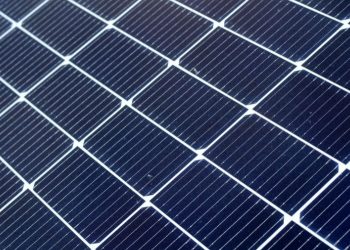Australia: the land of scorching sun and, increasingly, of parched earth. While we rightly celebrate our abundant sunshine as a source of clean energy, there’s a hidden benefit to solar power that is often overlooked: water conservation.
In a country where drought is a constant threat, every drop counts. While the primary focus of solar energy discussions is often on reducing carbon emissions, the significant reduction in water usage for electricity generation is a vital, and perhaps underappreciated, advantage. In this post, we’ll explore how embracing solar power isn’t just about cleaner air, but also safeguarding our precious water resources.
Why our energy choices impact water
We flick a switch, the light comes on. Easy, right? But behind that effortless convenience lies a hidden cost: water. Traditional power plants are surprisingly thirsty. Whether they burn coal, or gas, or even rely on nuclear fission, these facilities guzzle vast amounts of water for cooling and steam generation. Think of it like this: for every kilowatt-hour (kWh) of electricity we generate from these sources, a significant volume of water is used, and often lost through evaporation.
Just how much are we talking about? In Australia, the average coal-fired power plant uses several litres of water to produce a single kWh. Multiply that by the massive energy demands of our homes, businesses, and industries, and the numbers become staggering.
Traditional power generation accounts for a substantial portion of our national water consumption. This isn’t just water flowing through pipes—it’s water drawn from our already stressed rivers and reservoirs, impacting vital ecosystems and potentially reducing the availability for agriculture and even drinking water, especially during those increasingly frequent droughts.
The problem is compounded by the fact that many of these power stations are found in areas already facing water scarcity. Imagine the strain on local water resources when a prolonged dry spell hits and the power plant still needs its constant supply. This creates a direct conflict between energy needs and essential water access for communities and the environment. Furthermore, the heated water discharged back into waterways can disrupt aquatic life and contribute to thermal pollution.
The truth is, that our energy choices have a direct and often overlooked impact on our water security. Continuing to rely on water-intensive power generation methods is simply not a sustainable path for a dry continent like ours. We need to start asking: can we power our lives without draining our precious water resources?
Solar panels: A water-wise energy solution
Solar panels offer a refreshing alternative to traditional power plants. They generate electricity directly from sunlight, a process that requires no water for cooling or steam generation. This fundamental difference makes solar a powerful tool for water conservation.
A typical solar photovoltaic (PV) system works by converting sunlight into electricity using semiconductor materials. No spinning turbines, no boiling water, no massive cooling towers. The energy production process itself is entirely water-free.
When it comes to cleaning the panels, the amount of water used is minimal—far less than the continuous water demands of traditional power plants. Often, rainwater is enough for cleaning, and even in dry periods, a quick wipe-down with a small amount of water is all that’s needed. This occasional, minimal water use pales in comparison to the constant, massive withdrawals needed by conventional energy production.
Compared to coal, gas, or nuclear power, the water footprint of solar energy is virtually non-existent. This dramatic reduction in water demand is a game-changer, where water scarcity is a constant concern.
Why solar’s water savings matter here
The water-saving benefits of solar energy are particularly significant. We live on the driest inhabited continent, and water scarcity is a constant concern. Solar provides a powerful way to mitigate this challenge:
· Drought resilience: When water resources are already stretched thin, traditional power plants face significant operational challenges. On the other hand, solar continues to generate electricity as long as the sun shines, proving a reliable energy source even when water is scarce. This strengthens our drought resilience and prevents the difficult trade-offs between energy needs and essential water use.
· Water security: By reducing our reliance on water-intensive power generation, we free up precious water resources for other critical needs. This includes agriculture, which is necessary for our food security, as well as providing clean drinking water for communities. Solar helps ensure that water is available where it’s needed most.
· Environmental impact: Reducing water withdrawals for power generation has a positive ripple effect on our environment. Our rivers and ecosystems, often stressed by overuse, benefit from reduced pressure. This helps protect aquatic life and maintain the health of our waterways.
· Economic benefits: While the initial investment in solar can seem significant, the long-term economic benefits are substantial. Reduced water consumption translates to lower costs for water treatment and distribution. Furthermore, generating your own solar power can lead to significant savings on electricity bills, putting money back in the pockets of Aussies. Government incentives and rebates can also help make solar more accessible and affordable.
· Community benefits: Investing in solar is an investment in our future. It promotes sustainable development and empowers local communities to take control of their energy future.
In conclusion, solar panels offer a crucial, often overlooked benefit: water conservation. Especially in water-stressed Australia, this advantage is paramount. By choosing solar, we not only embrace clean energy but also safeguard our precious water resources, bolstering drought resilience, improving water security, and protecting our environment. The transition to solar is a vital step towards a sustainable future for Australia, ensuring both our energy needs and our water resources are secure for generations to come.
Energy Matters has been in the solar industry since 2005 and has helped over 40,000 Australian households in their journey to energy independence.
Complete our quick Solar Quote Quiz to receive up to 3 FREE solar quotes from trusted local installers – it’ll only take you a few minutes and is completely obligation-free.


















